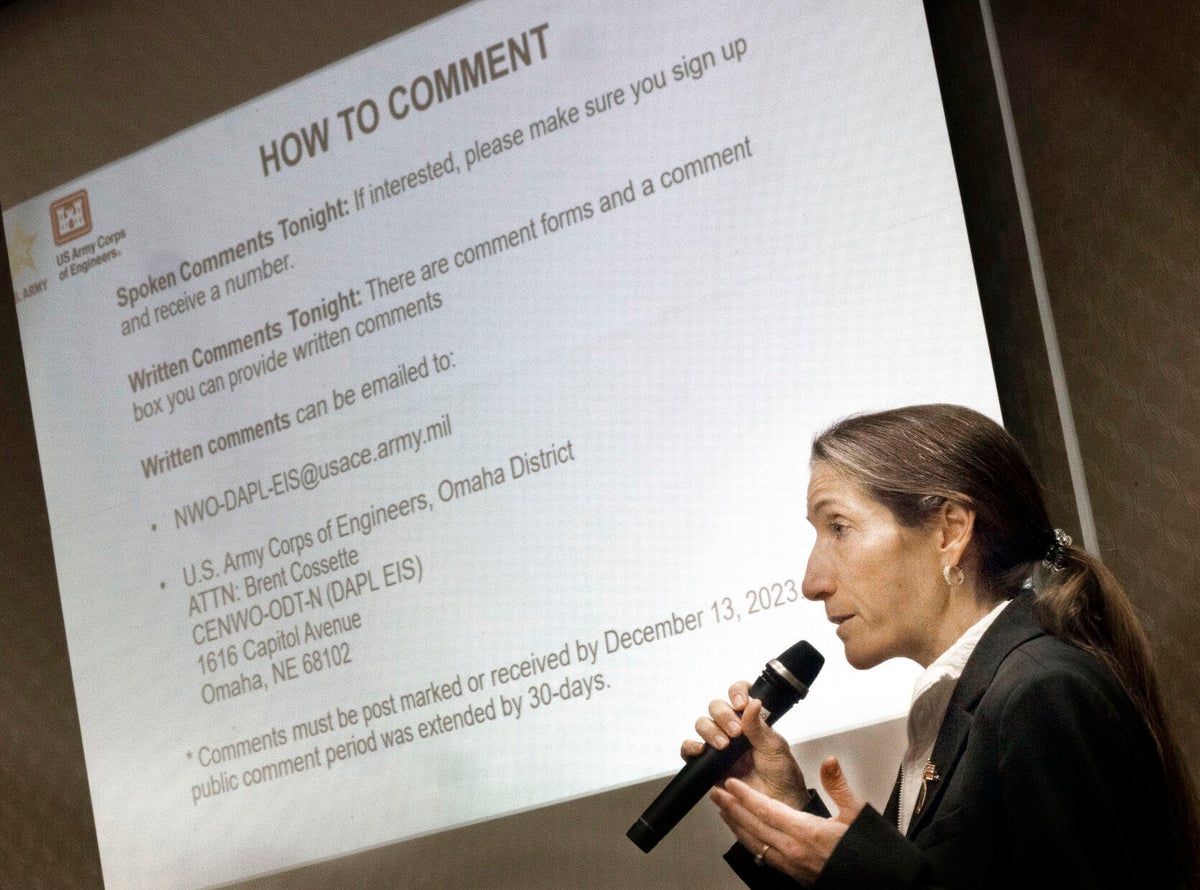
The U.S. Army Corps of Engineers, in the wake of complaints, changed the format of oral testimony for public comments on a draft environmental review of the controversial Dakota Access oil pipeline.
The Corps held two meetings in Bismarck, on Wednesday and Thursday, for public comments on the document that will help determine whether the federal government grants the easement for the pipeline's crossing under the Missouri River near the Standing Rock Sioux Tribe's reservation. The tribe has long opposed the pipeline due to the risk of an oil spill.
Pipeline opponents had criticized the Wednesday meeting because oral testimony was only accepted in private to stenographers in a curtained area in a hotel ballroom. Many people spoke to the room outside of the curtained area, but what they said was not included as official testimony. For example, one man made a demonstration of challenging Corps officials to drink from a cup in which he had poured oil and water.
On Thursday, attendees were given the option to include what they said to the public as their official comment, The Bismarck Tribune reported.
The slight change in the meeting format was due to a smaller public turnout; only 20 people had signed up to make oral comments at Thursday's meeting, Corps spokesman Steve Wolf told The Associated Press.
“Both meetings essentially operated in the same fashion. People who wanted to make oral comments in private or openly in front of the entire assembled attendees were able to do so. Those who wanted their oral or written comments to be officially entered into the administrative record were able to do so both nights,” Wolf told AP.
The pipeline has been transporting oil from western North Dakota since 2017, after months of protests with hundreds of arrests.
The public comment period closes Dec. 13.







